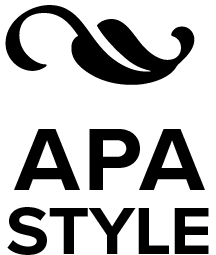Hubungan Pola Asuh Orang Tua Dengan Prestasi Belajar Siswa Sekolah Dasar
Keywords:
Parenting style, Students Achievement.Abstract
One of the developmental tasks of school-age children are learning things which are not only derived from formal education, but also through their surroundings, one of them is the family environment. Families in facilitating children's learning will affect their academic achievement. One’s learning achievement is the result of the interaction of various factors that influence both from the inside (internal factors) or from the outside (external factors) and one of the external factors that has the influence is from the family environment through the parenting style applied (Abu Ahmadi Supriyono & Widodo, 2004) and there are various kinds of parenting styles adopted by parents, such as the authoritarian, permissive, and acceptance style. The purpose of this research is to determine the correlation between parenting style and students’ achievement in elementary school of class-4 Lawang. The design used was correlative. The population is 130 students, and the sample was 41 students. Sampling technique was using purposive sampling. The independent variable was the parents' parenting style and the dependent variable was the students’ achievement. Data collection using the enclosed questionnaire and it was analyzed using Pearson Correlation statistical test with p <0.05. The research found out that nearly all parents (92.68%) as many as 38 parents apply democratic parenting. Students’ achievement at grade 1 in majority (53.66%) as many as 22 students have better academic achievement, grade 2 students in majority (51.22%) as many as 21 students have fair academic achievement and grade 3 students in majority (56.10%) as many as 23 students have fair academic achievement. There is a correlation between parenting style and grade 4 students’ achievement on 1st grade while at grade 2 and 3  there is no parenting style correlation with students’ achievement in 4th grade. Based on the result of the study, it is expected that parents need to understand the children and apply the best parenting style for children.
References
Chairinniza. (2007). Keberhasilan Anak Tergantung Orang Tua. Jakarta: PT Gramedia
Gunarsa, Singgih. (2000). Psikologi Perkembangan. Jakarta: Gunung Mulia.
______________. (2000). Psikologi Untuk Membimbing. Jakarta: Gunung Mulia.
Hurlock, Elizabeth, B. (2001). Psikologi Perkembangan. Jakarta: Erlangga.
Muhibbin Syah. (2003). Psikologi Pendidikan dengan Pendekatan Baru, Edisi Revisi. Bandung: PT. Remaja Rosdakarya Offset.
Notoatmodjo, Soekidjo. (2002). Metodologi Penelitian Kesehatan. Jakarta: PT. Rineksa Cipta.
Soeharman. (2000). Buku Saku Perkembangan Anak.Jakarta: EGC.
Soetjiningsih. (1995). Tumbuh Kembang Anak. Jakarta: EGC.
Sugiyono. (2003). Statistik Untuk Penelitian. Jakarta: IKAPI.
Supartini Yupi. (2004). Konsep Dasar Keperawatan Anak. Jakarta: EGC.
Sutikno S. (2007). Rahasia Sukses Belajar dan Mendidik Anak. Mataram: NTP Press.
Yusuf, Syamsu. (2000). Psikologi Perkembangan Anak dan Remaja. Bandung: PT. Remaja Rosdakarya Offset.













